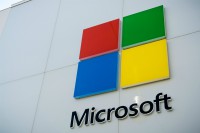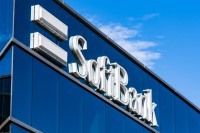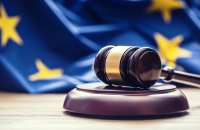
Tesla Reports Fourth Consecutive Quarter of Profits
Tesla has now achieved four consecutive quarters of profitability. Initially, Tesla shares rose after reporting second-quarter results surpassing expectations, but later sank. “Investors expect a lot from Tesla these days,” writes Al Root in Barron’s.
Indeed, this is an instance in which a great performance wasn’t enough to calm the fears of investors. As Root points out in his article, “Tesla shares have soared over the past year, gaining about 475% and crushing comparable returns of the S&P 500 and Dow Jones Industrial Average.” From my perspective as an industry observer, that makes Tesla an attractive investment.
“Tesla also reported its first full year of profitability on a GAAP basis, which means it can now be considered for inclusion on the S&P 500 index,” writes Lora Kolodny of CNBC. “On the earnings call Wednesday, (Elon) Musk announced that Tesla will build its next factory near Austin, Texas. The company plans to dedicate its Fremont, California, car plant to the production of Model S and Model X vehicles for all markets, and for Model 3 and Model Y production for the Western half of North America.”
Tesla is now looking to lock in long-term profitability by reducing production costs and leveraging the success of its advanced automotive technology software.

Driven by Need for Work-at-Home Tech, Microsoft Beats Expectations of Analysts
The global shift in work has boosted earnings for one of the world’s legendary tech firms.
“Microsoft earnings easily beat analysts’ expectations for the most recent quarter, as the pandemic drove demand for the company’s cloud and remote collaboration tools,” writes Clare Duffy of CNN. The company “reported $38 billion in revenue for the three months ended in June — up 13% from the same period in the prior year and well above the $36.5 billion Wall Street analysts had expected. Earnings for the quarter were $1.46 per share, again handily beating analysts’ projection of $1.34 share.”
From my perspective, the upbeat news from Microsoft is another indication of continuing strength and resilience in the tech sector.

SoftBank May Sell Stake in Chip Designer to Nvidia
The semiconductor industry continues to make headlines as computers at all levels become more powerful and complex.
“Arm Ltd., the semiconductor designer owned by SoftBank Group Corp., is attracting takeover interest from graphics chipmaker Nvidia Corp., people with knowledge of the matter said,” according to an article published this week in Bloomberg Technology. “Nvidia made an approach in recent weeks about a potential deal for Cambridge, England-based Arm, according to the people. Other potential bidders could also emerge, the people said, asking not to be identified because the information is private.”
It’s not surprising that SoftBank would be interested in a deal to sell Arm. If such a deal went through, it would significantly strengthen Nvidia’s position in a highly competitive and lucrative market.
“SoftBank, led by billionaire Masayoshi Son, is exploring options to sell part or all of its stake in Arm through a private deal or public stock listing,” according to the Bloomberg article. “A deal for Arm could become the biggest-ever acquisition in the chip industry, according to data compiled by Bloomberg. Arm is owned by SoftBank and its $100 billion Vision Fund. The Japanese group bought Arm, which at the time was the U.K.’s largest listed technology company, for about $32 billion in 2016.”

European Court Upends EU-U.S. Data Transfer Agreement
A top European court has ruled against the EU-U.S. Privacy Shield, an agreement hammered out to regulate flow of data between the U.S. and Europe.
“The decision promises to have major repercussions for the more than 5,300 companies covered by the framework, ranging from banks to social media giants such as Facebook and Twitter,” according to an NPR report. “Under the Privacy Shield, implemented in 2016, self-certified companies that comply with the agreement’s requirements are considered to have met the EU’s higher standard for data privacy.”
The court’s decision, however, “does not concern so called ‘necessary’ data transfers — such as being able to send an email to book a hotel room. Rather this is about the bulk outsourcing of data processing from the EU to the US (typically undertaken for cost/ease reasons). So one knock on effect of (the) ruling might be that more companies switch to regional data processing for European users,” writes Natasha Lomas of TechCrunch.


